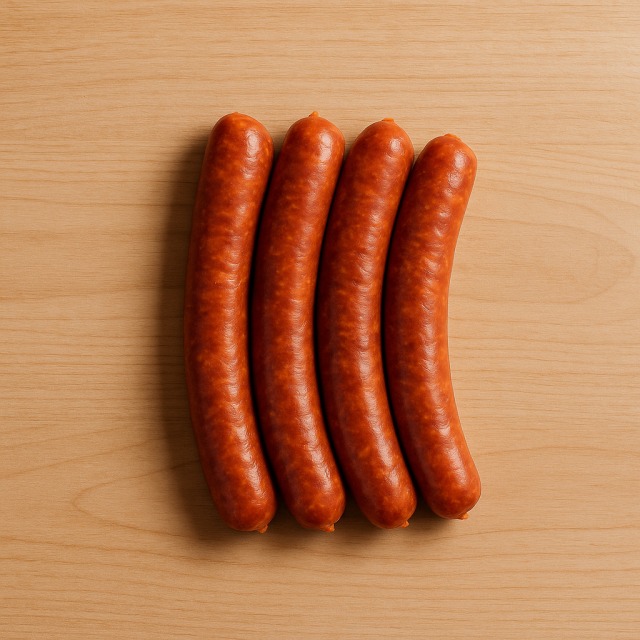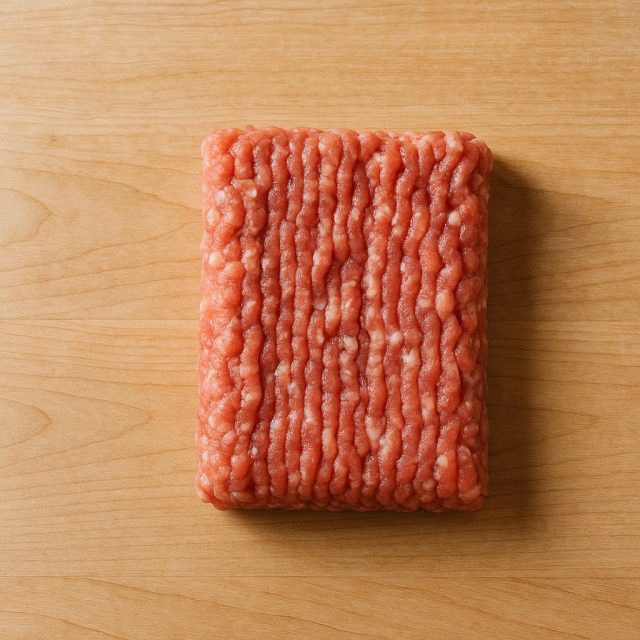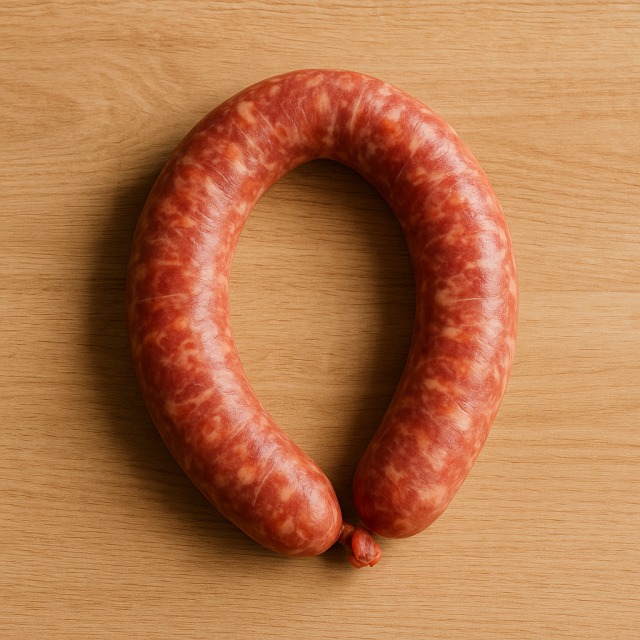Calorie Chart / Meat & Eggs / Merguez
How Many Calories Are in Merguez?
Calculation of the nutritional value & Recommended Dietary Intake of merguez
For g and a calorie requirement of kcal
| Calories 202 kcal | Proteins 9.6 g | Lipids 18 g | Carbohydrates 0.3 g |
| 10% | 13% | 27% | 0% |
Health benefits of merguez

Merguez - 100g
Calories 336 kcal
Proteins 16 g
Lipids 30 g
Carbohydrates 0.5 g
Traditional North African merguez is a spicy sausage made from lamb and/or beef. It is considered a high-calorie food: those calories make it an efficient source of concentrated energy, which can be useful for people with elevated energy needs, such as outdoor workers or endurance athletes. Its protein content helps maintain muscle mass, while its fat supplies fat-soluble vitamins.
Merguez provides vitamin B12, niacin (B3), and zinc, all involved in normal metabolism and immunity. The iron it supplies is mainly heme iron, absorbed more easily than the non-heme iron found in plants. Selenium and phosphorus are also present in moderate amounts. Because of its calorie density, sodium content, and saturated fat, it should be eaten in reasonable portions, but the same calories deliver useful micronutrients that can be harder to obtain in very low-fat diets.
On the cultural side, merguez appeared in the Maghreb in the 12th century and became popular in France with the rise of couscous restaurants. This history explains why calories from merguez are often linked to festive grilling and summer barbecues. The rich cumin-harissa seasoning also contains antioxidants such as carvacrol and thymol, adding potential—though still supposed—antibacterial benefits. Remember: its calories are high, so balance them with lighter dishes throughout the day.
Tips for incorporating merguez into a balanced diet
Because merguez brings substantial calories and strong flavors, pair it with high-fiber, low-calorie sides to get a balanced plate. A classic option is to serve it with steamed semolina and vegetables in a bowl of couscous; the grains soak up fat, while the vegetables lower the average calories per bite. Grilled zucchini, tomato wedges, and strips of bell pepper add color, vitamins, and crunch without many calories.
If you crave a sandwich, slip one cooked merguez into a whole-meal roll with raw arugula and a spoon of tzatziki; you still enjoy the recognizable taste but dilute the calories with vegetables and fermented dairy. Fans of mixed grills can alternate merguez with lean cuts like chicken breast or fish such as salmon to diversify proteins and spread calories more evenly. Finally, for a spicy winter stew, slice merguez into a pot of lentils: the pulses' fiber helps slow the absorption of calories and steadies blood sugar.
Whatever recipe you choose, control portion size—one to two sausages are usually enough—so the calories from merguez fit comfortably into your overall daily allowance.
Frequently Asked Questions
- How many calories in merguez?
- There are 336 kcal per 100 g.
- Is merguez higher in calories than chipolata?
- Yes, merguez generally contains more fat and therefore more calories than a typical chipolata of the same weight.
- How can I lower calories when eating merguez at a barbecue?
- Limit yourself to one sausage, remove any visible fat after grilling, and fill the rest of your plate with salad or grilled vegetables to keep overall calories under control.
- Do the spices in merguez influence calories?
- No, cumin, coriander, or harissa add negligible calories; the calories mainly come from meat and fat.
- Can athletes include merguez in a high-protein but moderate-calorie diet?
- Yes, but they should weigh their portion and combine it with low-calorie sides like broccoli to prevent calories from exceeding their target.
Similar foods
Information provided by Calorie Menu may contain inaccuracies or errors. It cannot, under any circumstances, substitute medical advice or medication.










